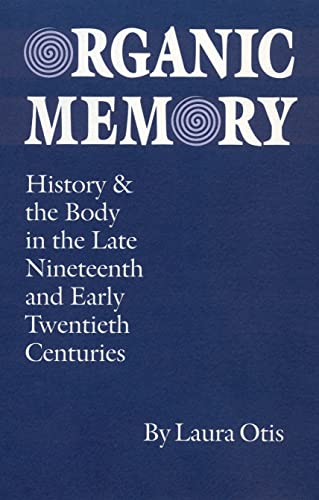Items related to Organic Memory: History and the Body in the Late Nineteenth...
Organic Memory: History and the Body in the Late Nineteenth and Early Twentieth Centuries (Texts & Contexts) (Texts and Contexts) - Hardcover

How does the past live in us? Do we inherit our ancestors' memories as we do their physical characteristics? In the nineteenth century, mainstream science embraced a long-standing superstition: the belief that memory could be inherited. Scientists reasoned that, just as bodies were reproduced from generation to generation, so were thoughts, memories, and cultural achievements. Heredity and identity were no mere family matter, but the basis of nations. The glories and sins of the past were not gone: they remained in the tissues of living people, who could be honored or blamed accordingly. Organic Memory surveys the literary and scientific history of an idea that will not go away. Focusing on the years between 1870 and 1918, Otis explores both the origins and the consequences of the idea that memories can be inherited. The organic memory theory contributed to the genocidal programs of the Third Reich, and it erupts in pop-psychology, racist propaganda, and ethnic cleansing. To track the spread, intensity, and endurance of this especially powerful idea, Otis singles out major authors whose work reinforced or ridiculed belief in organic memory. They include writers who were internationally influential yet who simultaneously represented their national traditions: Thomas Mann, Sigmund Freud, C. G. Jung, Emile Zola, Thomas Hardy, Miguel de Unamuno, Pio Baroja, Emilia Pardo Bazan, and even Sir Arthur Conan Doyle. The debates over the human genome project and the explosions of ethnic violence in the former Yugoslavia, in Azerbaijan, Somalia, and elsewhere demonstrate how seriously organic memory continues to affect modern medicine and politics.
"synopsis" may belong to another edition of this title.
Synopsis:
How does the past live in us? Do we inherit our ancestors' memories as we do their physical characteristics? In the nineteenth century, mainstream science embraced a long-standing superstition: the belief that memory could be inherited. Scientists reasoned that bodies were thoughts, memories, and cultural achievements. Heredity and identity were no mere family mater, but the basis of nations. The glories and sins of the past were not gone: they remained in the tissues of living people, who could be honoured or blamed accordingly. "Organic Memory" surveys the literary and scientific history of an idea that will not go away. Focusing on the years between 1870 and 1918, Otis explores both the origins and the consequences of the idea that memories can be inherited. The organic memory theory contributed to the genocidal programs of the Third Reich, and it erupts in pop-psychology, racist propaganda, and ethnic cleansing. To track the spread, intensity, and endurance of this especially powerful idea, Otis singles out major authors whose work reinforced or ridiculed belief in organic memory.They include writers who were internationally influential, yet who simultaneously represented their national traditions: Thomas Mann, Sigmund Freud, C. G. Jung, Emile Zola, Thomas Hardy, Miguel de Unamuno, Pio Baroja, Emilia Pardo Bazan, and even Sir Arthur Conan Doyle. The debates over the human genome project and the explosions of ethnic violence in the former Yugoslavia, in Azerbaijan, Somalia, and elsewhere demonstrate how seriously organic memory continues to affect modern medicine and politics. Laura Otis is an assistant professor of English at Hofstra University.
About the Author:
Laura Otis, an associate professor of English at Hofstra University, holds an M.A.in neuroscience and a Ph.D. in comparative literature. She was named a MacArthur Fellow in 2000.
"About this title" may belong to another edition of this title.
- PublisherUniversity of Nebraska Press
- Publication date1994
- ISBN 10 0803235615
- ISBN 13 9780803235618
- BindingHardcover
- Number of pages300
Buy New
Learn more about this copy
£ 289.32
Shipping:
£ 3.40
Within U.S.A.
Top Search Results from the AbeBooks Marketplace
Organic Memory: History and the Body in the Late Nineteenth and Early Twentieth Centuries (Texts and Contexts)
Published by
University of Nebraska Press
(1994)
ISBN 10: 0803235615
ISBN 13: 9780803235618
New
Hardcover
Quantity: 1
Seller:
Rating
Book Description Hardcover. Condition: new. New Copy. Customer Service Guaranteed. Seller Inventory # think0803235615
Buy New
£ 289.32
Convert currency
Organic Memory: History and the Body in the Late Nineteenth and Early Twentieth Centuries (Texts and Contexts)
Published by
University of Nebraska Press
(1994)
ISBN 10: 0803235615
ISBN 13: 9780803235618
New
Hardcover
Quantity: 1
Seller:
Rating
Book Description Hardcover. Condition: new. New. Seller Inventory # Wizard0803235615
Buy New
£ 291.85
Convert currency

